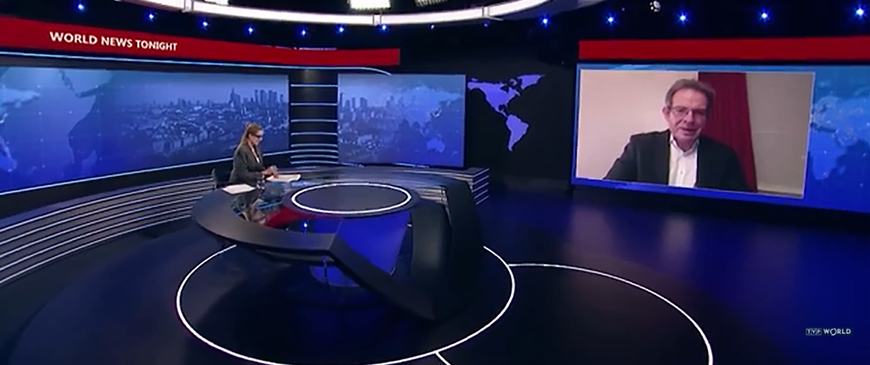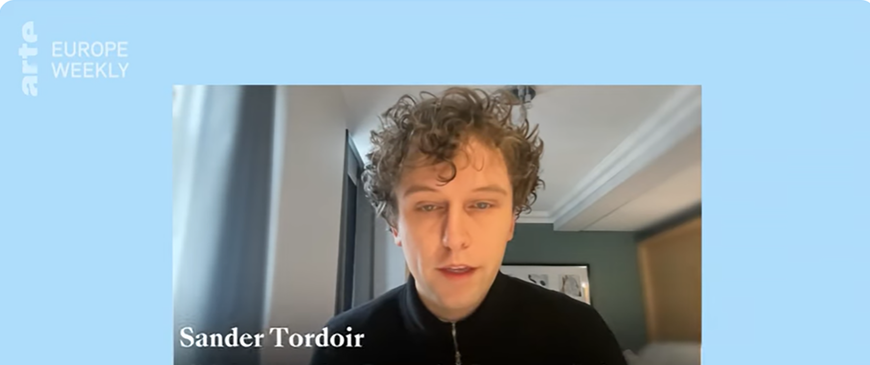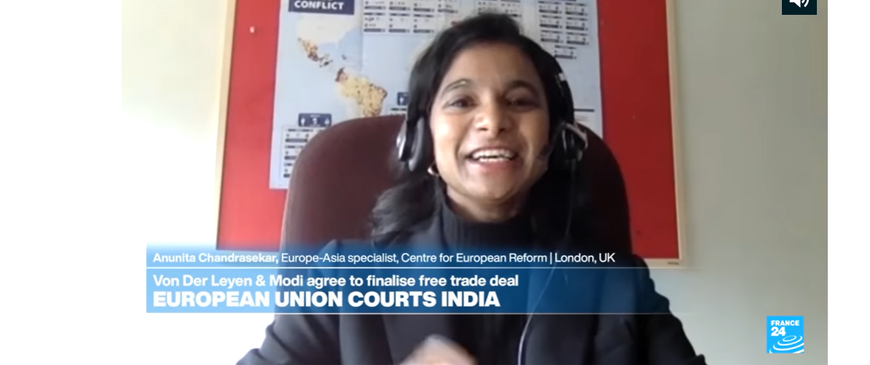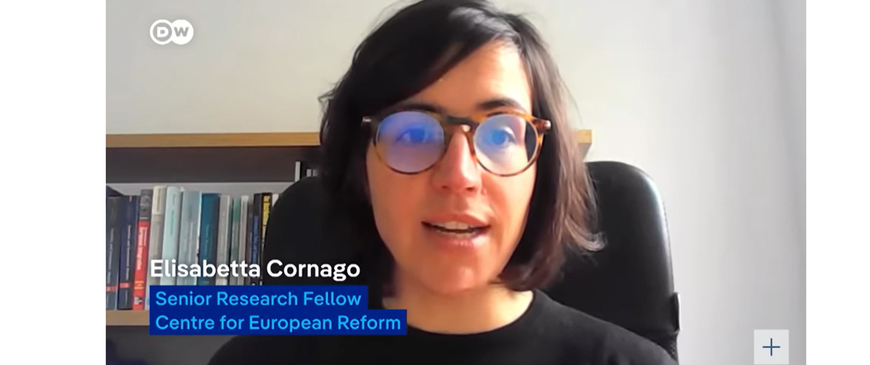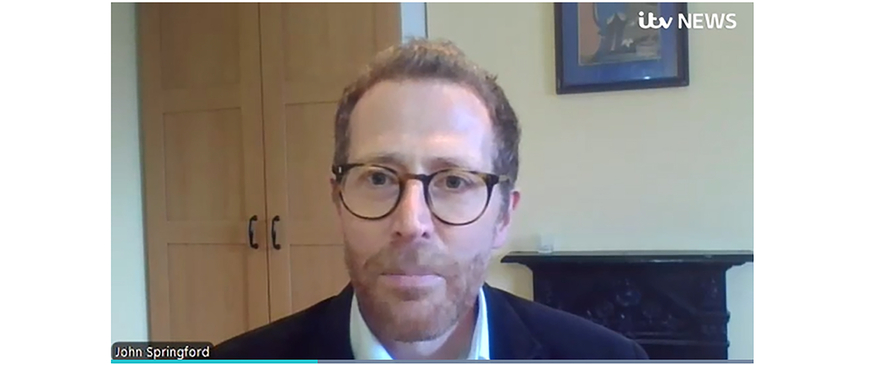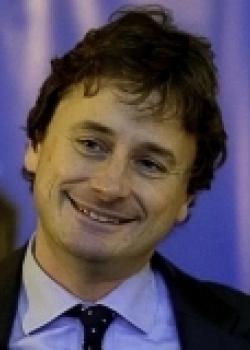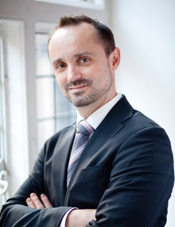Press
Libya conflict leaves EU diplomacy struggling
11 March 2011
Monsters and Critics
"The EU policies just aren't mature enough or aligned enough to absorb this kind of crisis," says Hugo Brady of the Centre for European Reform, a think-tank in London. "They're still in learning mode. The Europeans can't find a common line on Russia, so I don't find it so hard to believe they can't find a common line on Libya," said Brady. "Everybody takes their stand, then the event actually happens, then the EU cobbles together a policy based on the country's version that was most right, But the first principle of their action should be like the Hippocratic oath: first do no harm.
EU summit to take only minor steps on debt crisis
08 March 2011
Reuters
"The competitiveness pact as it stands is largely meaningless, it's beside the point right now," said Simon Tilford, chief economist of the Centre for European Reform, a London-based think-tank. "The immediate issue is debt restructuring and bank recapitalisation and they're not dealing with that. The wiggle room, the political room for manoeuvre on the part of the Germans, is worryingly limited," said Tilford.
Analysis - "Little Britain" stands back as eurozone advances
07 March 2011
Reuters
"One of the most potentially damaging things is the impact on the balance of economic philosophy within the Eurogroup," said Charles Grant, director of the Centre for European Reform. "Without Britain, Sweden, Denmark or Poland, the whole thing will become more corporatist. Cameron is probably learning that he has got to work through Europe on a lot of issues, for example to reform the EU neighbourhood policy towards north Africa," Grant said. "But the risk is that you get a Britain that is half in and half out of the EU.
Portugal hovers on the verge of crisis as eurozone argues over integration
06 March 2011
The Guardian
"In the short term, the existential threat is the financial crisis. Dealing with that will have to involve reducing the debt burden on the three small states [Greece, Ireland and Portugal], and moving to recapitalise the banks in the periphery, and in the core", says Simon Tilford, chief economist at the Centre for European Reform.
Could defence cuts hobble Europe's response to Libya?
06 March 2011
Time
Clara Marina O'Donnell, a research fellow at the Centre for European Reform, says European defence capabilities have actually been diminished since they took part in NATO's 1995 bombing campaign in Bosnia. "Europeans would be not be prepared for any intervention in Libya now. They cannot deliver on action. In fact, Europe could [probably] not do Bosnia again", she says.
Worries abound that fixes for crisis will under-deliver
04 March 2011
The Wall Street Journal
In fact, said Philip Whyte of the Centre for European Reform, "the word competitiveness seems to have become a substitute for that of imbalance." It is the eurozone's imbalances — the big current-account surpluses run by Germany and the other core economies and the big deficits being run by the peripheral economies — that he sees at the root of the eurozone's problems.
Analysis: Ireland's new government has little time to prove itself
27 February 2011
CNBC
"We are in a moment of maximum danger on that," said Hugo Brady, senior research fellow at the Centre for European Reform. "We are hamstrung in the language of Brussels because we are askers and in the logic of Brussels askers have to give something."
Europe faces risks with unrest in Arab world
17 February 2011
Reuters
"The European Union has been struggling to find an appropriate policy to apply to North Africa and the Middle East," said Clara O'Donnell of the Centre for European Reform. "We are really at a point where there will be lots of difficult questions and I think right now the EU is clearly uncertain how it's going to address them." ..."There is a risk that things go very badly," said O'Donnell.
Cameron warned against two-speed Europe
15 February 2011
Financial Times
David Cameron, Britain’s prime minister, has been warned by his coalition allies that he risks side-lining Britain in a two-speed Europe if he adopts an “empty chair” policy while eurozone countries led by France and Germany take key economic decisions - Charles Grant, director of the Centre for European Reform, argues: "You do lose influence if you're not in the room. We have a strong interest in making sure we have a say and influence decisions."
Respite ends for European finance ministers facing growing crisis agenda, market pressures
11 February 2011
Canadian Business
"Over the last few weeks a certain amount of complacency has crept in," said Simon Tilford, chief economist at the Centre for European Reform in London. "But I don't think much that happened in the last few weeks has been very favourable." At first, investors viewed the pact, presented as a sign of the eurozone growing closer together, as a step toward growing economic cooperation or even fiscal union, said Tilford. "But when they looked a bit more closely at what that is actually going to include, it is coming up short again."
Ireland's anti-EU rhetoric may be here to stay
10 February 2011
Reuters
"Euroscepticism is a political force waiting to take off in Ireland," said Hugo Brady, senior research fellow at the Centre for European Reform. "Irish pro-Europeanism was always a very fickle political force and the version we had has run its course. If the country was seen to be forced to raise the corporation tax I am almost positive that one of the (mainstream) parties would go euro sceptic Ireland's relationship with the EU went through a child-like, puppy-love phase," said Brady.
EU nations shut out reform of single currency, says Commissioner
09 February 2011
The Times
Charles Grant, director of the Centre for European Reform said that some European ministers argue that Britain's refusal to be involved in the overhaul of the eurozone has made life extremely difficult for other non-euro countries. He said "There is a feeling among the Poles, Swedes, Danes and others concerned about this Franco-German initiative that Britain is partly to blame, because Britain, rightly or wrongly, has told the Germans they don't want to be involved.
An opportunity to shape things to come
07 February 2011
New York Times
"There are many, many other ways for individual countries and the EU to influence change in our neighbourhood," said Charles Grant, director of the Centre for European Reform in London. "But at the end of the day, if events in the Middle East have taught us anything, it is that Europe has to stick to its values and encourage civil society."
Germany and France roll out plan to boost euro
04 February 2011
New York Times
"I think we are seeing the beginning of a euro group which could become a more important organisation politically as well as economically," said Charles Grant, director of the Centre for European Reform. "France has long wanted the eurozone to be on a basis that made it more important and the Germans have now accepted that logic."
Brussels flat voice
03 February 2011
Die Welt
However, the Briton (Catherine Ashton) has some genuine strength. In a small circle, she can convince and generate consensus. "She is simply good with people. And she can explains things in a way that everyone understands", says Charles Grant from the British think-tank CER.
Is it the end for the euro?
31 January 2011
Management Today
"The adjustments facing Greece, Ireland or Portugal were always a tall order," argued Simon Tilford, chief economist of the Centre for European Reform, in an analysis of the euro's woes. "Now that borrowing costs have ballooned, those adjustments are impossible. Under no plausible economic growth forecasts will these economies be able to pay back their debts."
Security: A German military overhaul
31 January 2011
Financial Times
On the tactical front, the Bundeswehr invested heavily in tanks and armoured brigades. "Their role was to absorb the first wave of Russian tanks advancing across Europe, and halt them, in order to give the US time to come to the rescue," says Tomas Valasek, of the Centre for European Reform in London. "Germany has been saddled with the burden of the past in this regard, and it is right to change it".
German military capability could advance
31 January 2011
Financial Times
Germany has a critical role to play if the EU – either as a bloc or as a looser collection of states – is to play a bigger security role in the world. "In defence capability, there is a huge gap between the French and British on the one hand and the rest of the EU on the other," says Tomas Valasek of the Centre for European Reform. "The only country sitting in that gap is Germany." If it moves closer to France and Britain in terms of deployability, that makes "a big difference" to European capabilities.
Germany – the new mini-superpower
30 January 2011
The Christian Science Monitor
"The Germans aren't particularly Keynesian," says Charles Grant, director of the Centre for European Reform, a London-based think-tank. "They want to save and build, cut budgets, force austerity. The problem is how do states that are already immobilized cut their way to growth? Having said that, German elites are still committed to Europe. But they feel misunderstood right now as others in Europe complain." Whether Merkel's Germany is simply changing the model and habits of Europe, or is drifting away, is a question the best and brightest theorise about.
In Davos, is Spain the new Greece?
26 January 2011
The Wall Street Journal
For the first time, says Charles Grant of the Centre for European Reform in London, the EU has a single nation in the driving seat: Germany. Paris has taken a back seat following years of Franco-German leadership. Also, the European Commission, the EU's Brussels-based executive arm, has been weakened. That has imposed German thinking on the eurozone, Mr Grant says.

